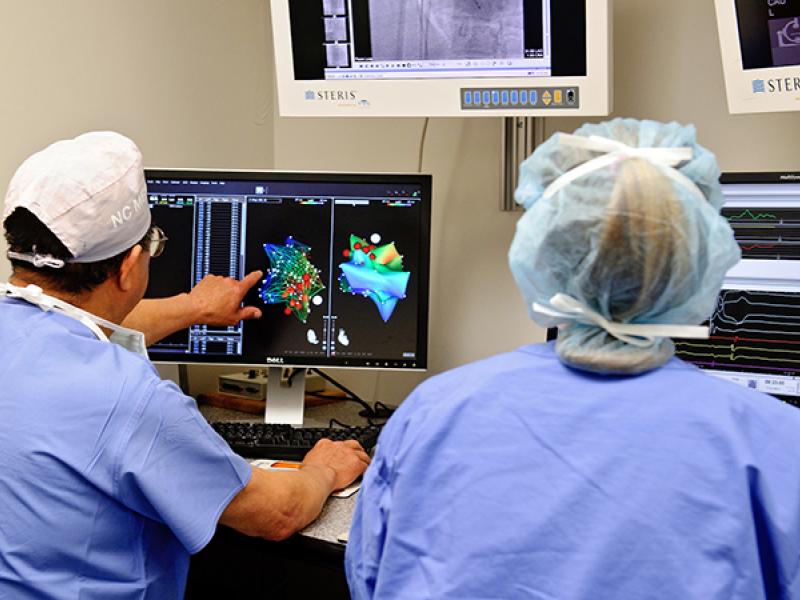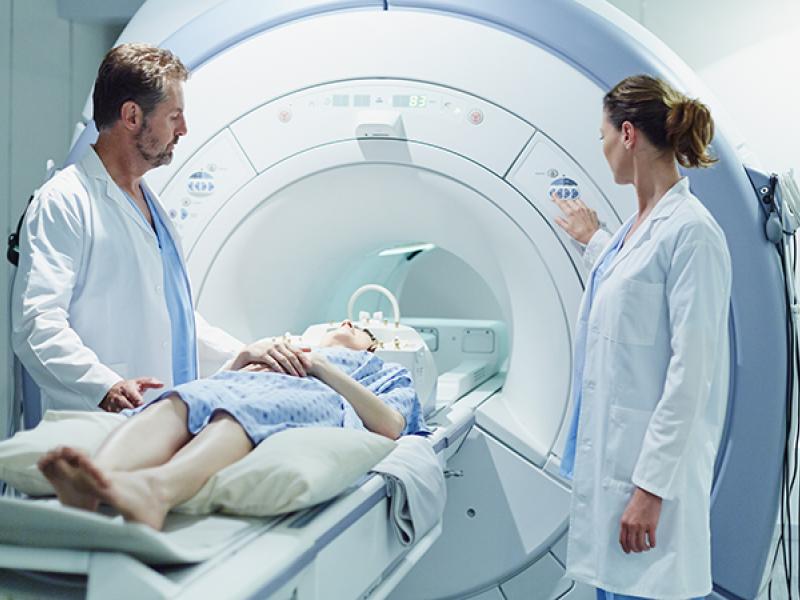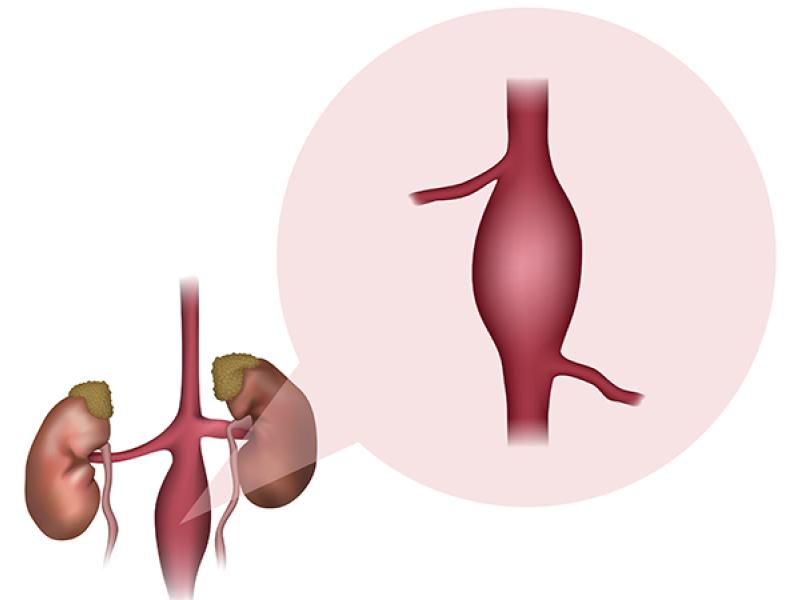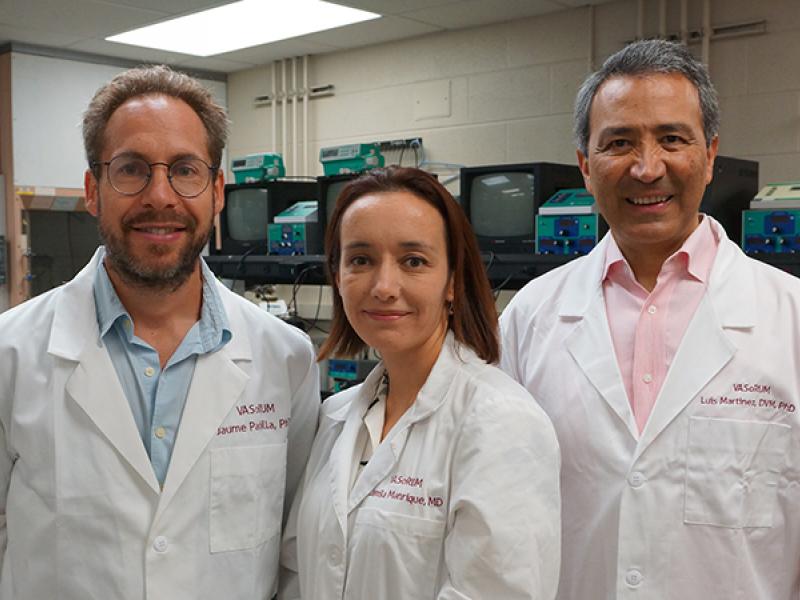The goal of the inpatient cardiology consult rotation is to train fellows in the care of inpatients with a variety of cardiovascular conditions and medical comorbidities.
Fellows will be expected to lead and educate a team of house staff and students as well as collaborate with the primary services by communicating their findings in a clear and timely manner. Fellows will also be expected to interact professionally with patients, families, and all members of the cardiology consult team.
Rotation leaders
- Dr. Brian Bostick (MUHC)
- Dr. Poorna Karuparthi (VA)
During this rotation an emphasis will be placed on:
- understanding the pathophysiology of a wide variety of cardiac conditions and different treatment options,
- provide effective therapy for cardiac conditions, and
- provide continued follow-up and advice to physicians of other services concerning cardiac patients.
Objectives
1st year fellow (4 rotations)
- Perform complete history and physical exam, refining aspects of the cardiovascular exam.
- Recognize the differential diagnosis of chest pain and determine appropriate diagnostic work up.
- Integrate information from diagnostic testing to optimize patient care.
- Interpret electrocardiograms accurately, particularly for patients with possible acute coronary syndrome and arrhythmias.
- Formulate differential diagnosis as well as detailed assessment and plan, with attending supervision.
- Review indications for cardiac testing, including stress testing, echocardiography (transthoracic and transesophageal), coronary angiography, CT, and MRI.
- Execute appropriate triage of patients, including identification of high-risk patients that may require immediate intervention or transfer to higher level of care.
- Review evidence and guidelines pertaining to consult questions.
- Recognize own limits of knowledge and seek help appropriately.
- Receive consult requests courteously and render consults in a timely fashion.
- Accept responsibility for communication between teams and prompt documentation.
- Effectively communicate findings in a timely manner both by speaking with a member of the referring team and documenting findings in a progress note.
- Effectively communicate with patients and their families about patient’s condition, plan of care, and prognosis, initially with assistance from the supervising attending.
- Engage in education of residents and students on the consult team as well as the referring teams.
2nd-3rd year fellow (1 rotation)
In addition to the above:
- Formulate differential diagnosis as well as detailed assessment and plan independently.
- Manage patients with a wide variety of cardiovascular conditions including but not limited to possible acute coronary syndrome, congestive heart failure, arrhythmias, syncope, infective endocarditis, valvular heart disease, pericardial disease, and peripheral vascular disease.
- Lead the consult team by assuming primary responsibility for patient care, triaging, communicating findings with referring teams and patients/families, and educating house staff and students.
- Independently conduct discussions with patients and families regarding patient’s condition, plan of care, and prognosis, and recognize indications for palliative care.
- Participate in successful transition of care from inpatient to outpatient setting.
- Apply guidelines and evidence-based medicine consistently.
Description of service
The MUHC consultative service is usually composed of the Cardiology Attending Physician, a Cardiology Fellow, Medical Residents, and Medical Students. Rounds are conducted at mutually agreeable times, usually in the afternoon on weekdays. A list of patients is generated and, to ensure continuity, checked out to the faculty or fellow on call on a daily basis, informing the person on call about important details of each patient. The VA Consultative Service includes the Attending physician and Cardiology Fellow assigned to the VA CICU/Consult Service.
Fellow responsibilities
- Provide a prompt written evaluation and treatment plan on patients referred for consultation from 7 a.m. to 6 p.m. Monday to Friday. The “night float” cardiology fellow provides this service during evenings 6 p.m. to 7 a.m.
- On weekends, the MU consult fellow on call will cover this service for new consults/admissions during the day from 7 a.m. to 6 p.m. on Saturday. The MU consult fellow will round on Saturday on old patients and is off on Sunday. The VA consult/CICU fellow will round on old CICU patients at MU and old patients at the VA on Saturday and Sunday. The VA consult/CICU fellow on call will cover new consults/admissions during the day from 7 a.m. to 6 p.m. on Sunday. The MU attending physician rounds on MU old consults on Sunday. At the VA, the consult fellow will round over the weekend alternating with the MUHC CICU fellow as mentioned previously.
- Discuss the plan with the assigned cardiology attending.
- Evaluate patients for potential admission to the Cardiology Service or arrange appropriate outpatient follow-up and testing.
- Provide teaching to residents and students.
- Communicate to physicians the results of the cardiology evaluation including test results and plans for further follow-up.
- At the VA, the fellow helps with electrical cardioversions and with tilt table studies.
The level of service and the degree of supervision provided will depend on the experience of the trainee.
First Year Fellows
- Assessment of patients referred for cardiovascular consult focusing on clinical skills required in the assessment of such patients
- Formulate a differential diagnosis and a management recommendation for such patients
- Acquire an understanding of the peri-operative assessment of patients undergoing non-cardiac surgery
Second Year Fellows
In addition to skills acquired at the previous level:
- Be able to effectively render assessment and recommendations on peri-operative cardiovascular care of the patient undergoing non-cardiac surgery
- Be able to effectively render assessment and recommendations on peri-operative cardiovascular care of the patient undergoing cardiac surgery especially in the areas of arrhythmia management, hemodynamics and myocardial ischemia and infarction
Third Year Fellows
In addition to skills acquired at the previous level:
- Be able to effectively function as a Cardiovascular Consultant
- Participate in the teaching of members of disciplines other than Cardiology
Attending responsibilities
A cardiology attending is available at all times to discuss any patient care issue, to supervise procedures, and to teach fellows and residents. The attending will see every new patient within 24-hours of admission and round with the team daily. The MU attending physician rounds on MU old consults on Sunday without the fellow.





